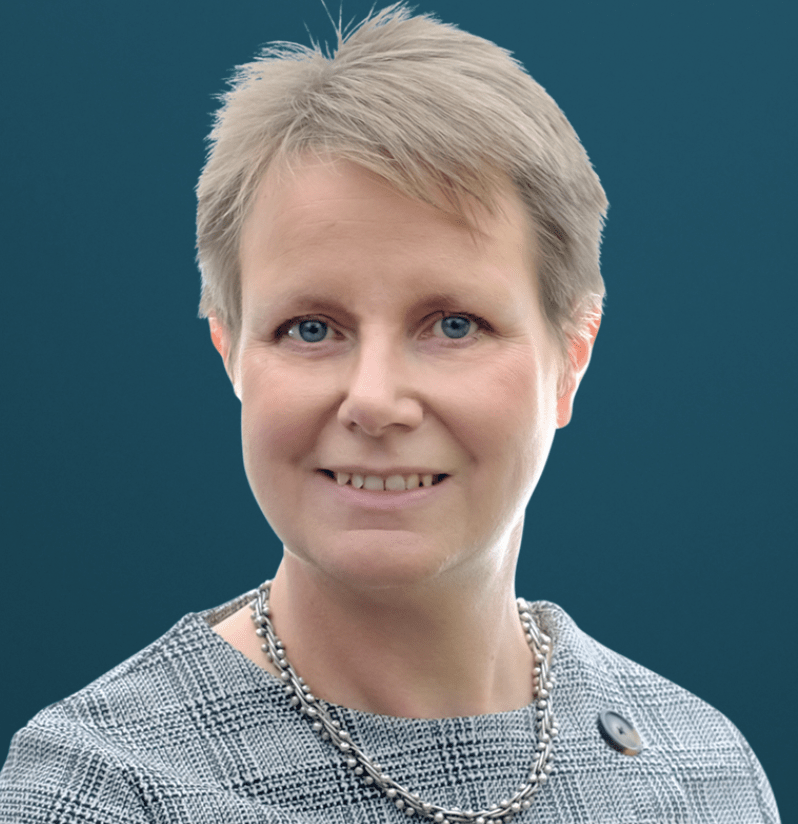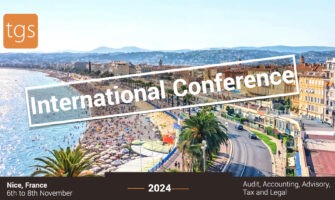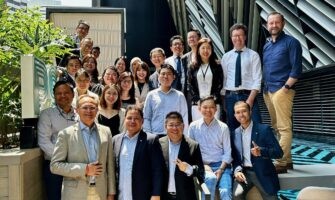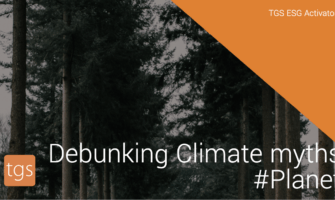08/03/2022
How to become an expert in UK VAT and indirect tax. Advice and information from TGS UK member Ruth Corkin at Hillier Hopkins
Tax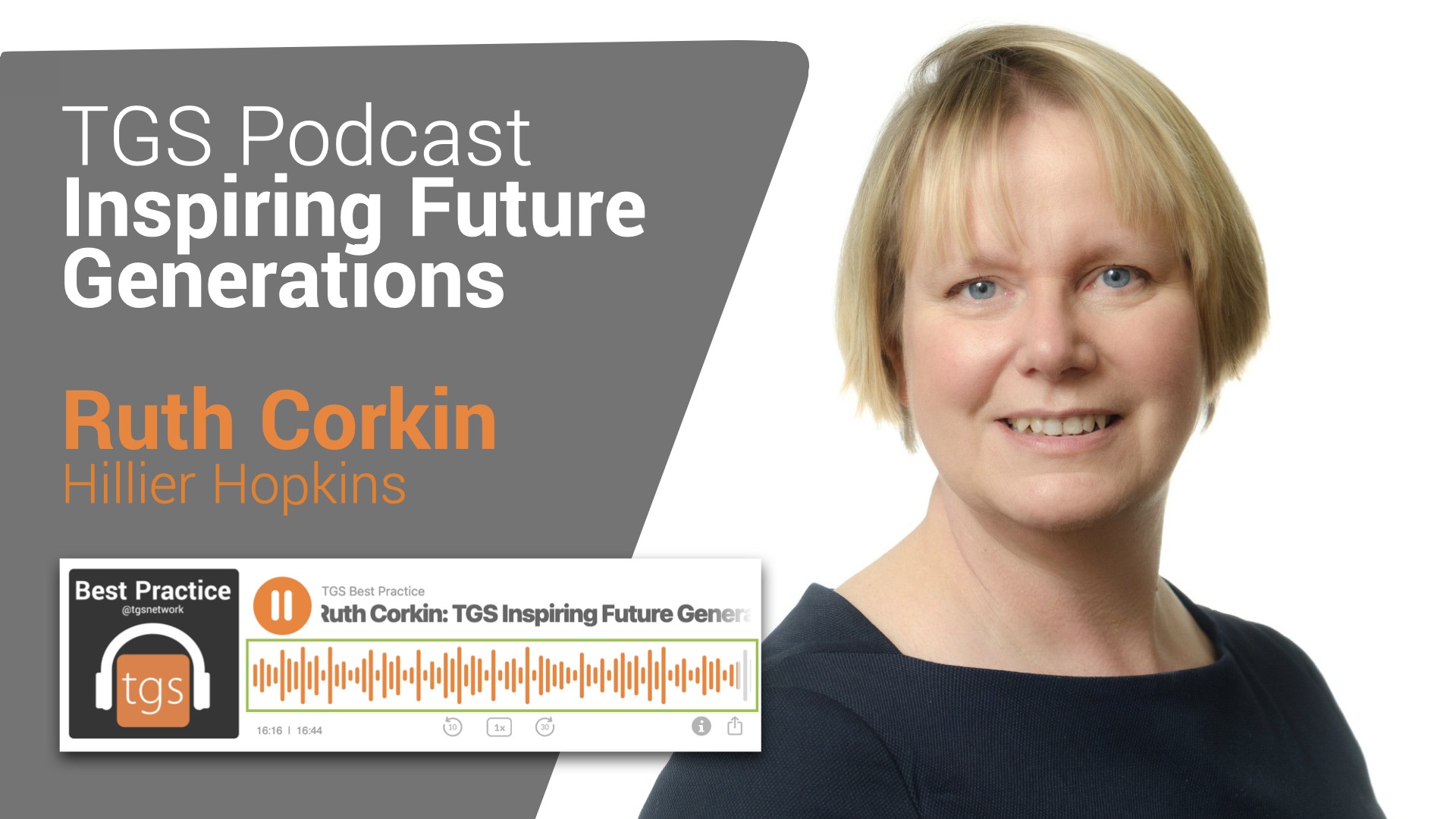
Inspiring Future Generations: UK Vat and Indirect Tax expert, Ruth Corkin.
TGS Best Practice Podcast
In this series of TGS Best Practice podcast episodes we are speaking to inspiring characters from TGS. The ‘Inspiring Future Generations’ podcast series was an innovation from conversations we had in preparation for International Women’s Day celebrations.
How did the the inspiring professionals in TGS get where they are? How are they clearing the way to help others move up to leadership positions in the audit, accounting, advisory, tax and commercial legal professions?
What advice can TGS professionals offer young people who would like are considering a career in audit, accounting, advisory, tax or commercial legal services?
TGS Inspiring Future Generations
Episode 1: Ruth Corkin
Podcast Transcription
Who are you? What do you do? What firm do you work for?
I’m Ruth Corkin. I’m a principal or partner in Hillier Hopkins LLP. My day job is VAT customs duty and indirect taxes.
What was your route in? How did you end up where you are now?
Oh, good question. I certainly didn’t sit at school and think I’m going to do VAT. I actually left school at about age 16 and worked for what is now GlaxoSmithKline in the laboratories, testing drugs, and all sorts of which came to market. But my big problem was I was studying for a chemistry degree and chemistry was not my strong point. And I assumed worked out that if I didn’t get my chemistry degree, I’d be spending most of my time measuring all sorts of things I didn’t want to do. So a vacancy came up with what was in Customs and Excise local VAT office. And I joined the civil service from there and started my career, then met my husband, so I needed to move.
I could have moved within Customs and Excise but they were going to put me in an enforcement team. And anyone who knows me knows that I am not the sort of person to demand money with menaces. So I left and joined Price Waterhouse as it was it’s now Price Waterhouse Coopers. And that’s where I started my professional career. So you know, sort of not very conventional, but then in VAT, we’re not very conventional.
What do you enjoy about the work you do?
It’s unpredictability actually. In my life, I like everything to be really yes or no, no surprises. But in my work life, I love the fact that VAT is unpredictable. The fact that I can get up in the morning and think I’m going to do this, that and the other and then find or do something completely different. Because something’s cropped up on the border, or someone’s got a particular problem. I’ve got one on machine games duty today to sort out and whatever.
I like the variety. I love the people I work with, we tend to be a bit more eccentric, I think in VAT, we tend to be a bit more cookie and sort of very sociable. So I like the people I work with. I like the team I work with. And I like getting a result for the client. At the end of the day. Some would say I probably like picking an argument. But there we go. So getting into the law, finding a solution for a client. So for instance, today I’m busy doing a skeleton argument ready to go to tribunal in a couple of weeks time. So on the tour operators margin scheme, not something I would necessarily put my hand up for, but doing anyway.
It can be as simple as clearing someone’s goods through customs right up to the tribunal work and trying to get the result that the client wants or needs in order to continue their business.
Do you have an example of a particular client where you made a difference you are proud of?
Yeah. I mean, I’ve I’ve got a couple of clients that I’m working with at the moment, doing customs warehousing, so setting up their customs warehouse so that they can move their goods a bit more easily in and out of the UK and EU. And one of them has had their inspection from customs. And it looks like that one is going to go through and the second one, we’re just starting on that journey. What I’ve learned from the first journey I can use on the second journey.
I know that it will help their business and make their life a lot easier. As a result, yes, they’ve got a lot of processes to adhere to. But it means that they’re not going to be charged due to when the goods go back into the EU, or vice versa.
It’s a really good feeling to know that you’re actually doing something that impacts on their business in such a positive way.
Have you had a mentor for you in your career development?
It’s mainly group influences. So at a very young age, I was very fortunate to go to an all girls school where you were taught, you could do anything you could fly. And that was really good because I came from a family background, which was the complete opposite. So it was really good to have a school that encouraged you to do different things. So we weren’t sort of channeled into cookery and needlework. Not there’s anything wrong with either of those, because I enjoy those as well. But we were we were encouraged to do mathematics and science and languages and humanities. In tandem with that I’ve been for a lot of my life a Girl Guide.
I started as a very small brownie and went through to the Girl Guides, and junior leadership. And I’ve been a leader of girls of various ages during that time. But the Girl Guiding Association also gives you that you can do sort of attitude. And then in my latest stage, I’m a member of quite a few groups, as people who know me well will know. But there’s one in particular, which is the senior women in indirect tax, which meets quarterly, we’ve been meeting virtually during the pandemic, obviously, but that that’s a group of similar women in similar positions, who it is quite lonely at the top sometimes whether you’re male or female, but these are women who have made it to the top and are keen to share.
So there are a group of women who are in a similar position to me, and we share our experiences and you know, how we can inspire the next generation and what we can learn from our own journeys to help others.
Have you had to overcome any challenge in your career?
Way back in my career, I was a working mum. And certainly in those days, so that was a number of years ago, and things have improved. Being a working mom and only been able to do 9 to 5 certainly made my career much more difficult. There’s there’s also the issue that I think in accountancy, in the legal profession, there’s a lot of burnout for mental health issues. So, you know, overcoming mental health issues, and, you know, I’ve been quite open about mine and how to deal with things, how to have coping strategies and things like that.
I chat to a lot of the women in in all my different networks, and they do find it much more difficult to progress. And I think that is still the case. And I would like to think that those of us that have made it to the top of our tree will clear the way so that it’s easier for the next generations and it’s much more acceptable and you talk about your boards and things like Having women on them, I’m not a great one for tokenism. I like to feel that I’ve earned my place.
I do feel that we do need more diverse boards in organizations, not just women, but women do help with sort of smoothing over some of the more aggressive sort of parts that can come out of a board meeting sometimes, and also give a different perspective, we, you know, we tend to sit back and reflect and then give opinions or views. And I think that’s quite a nice balance to have, in this day and age, and then it’s going to come at a time where people will look at the makeup of the board of any particular organization and say, “Do I want to work with some, you know, this organization with the board makeup that they’ve got?”. Certainly in local authority work here in the UK, that’s starting to be very much a trend.
Why haven’t you got women on your board? Why haven’t you got people of transgender or from the, you know, the LBGT community, that sort of thing? And I think it’s got to come to get that balance.
Is International Women’s Day important for you?
I’ve always been a great supporter of it. I’ve joined quite a few women’s group as a result of International Women’s Day, because the women’s groups tend to hold, you know, a celebration of it. But I think it’s important to me, because it’s it highlights the role that women have to make in society in general. And what there is still left to do to make that role easier. And so there are some great women, some very inspirational women, that you you see pop up on International Women’s Day.
I think there are also a lot of women who are working hard to bring about the change underneath who are probably not so high profile. And it is about the next generation for me, I’ve you know, I’ve got to where I want to go. There’s always things I want to do. Don’t get me wrong. But I think the next generation is really important. And encouraging them and mentoring them, and seeing how I can facilitate what they want to do is really important to me. And I think that is the message of International Women’s Day.
What advice would you give the young version of yourself?
The first thing is don’t take things personally, I do or I used to. And the other is that you will be recognized for what you do, you may have to work a little bit harder, but you will be recognized. And you will get that faith in yourself that you can do what you can do. So, you know, it’s taken me a long time to realize that I am actually good at what I do. But I think if that if somebody had said to me just bear with it, it will come it would have been really, really useful.
How do you keep yourself strong and energetic?
I like to exercise so I walked the dog and I haven’t walked him this morning. So he’s hanging around waiting for me to walk him. I take time where I can to meditate. One of the things I learned on mental health journeys to take space to actually get rid of the clutter that’s sort of forms in your brain during the day and accept the fact that you can only do what you can do. You can’t do everything and you can’t do it. 100% you know you can’t do 110%.
You you can’t be perfect. And somebody wants said to me, just bear in mind unless something you do ends up in someone being hurt or dying. Nothing is going to be that bad. And it’s actually a really useful thing. I can remember coming out of a webinar once it finished probably half an hour early, and I was beating myself up over And then I stopped and so on that one, nobody died as a result of it. And actually, people are probably glad they got half an hour their lunch break back. So, you know, you sort of you turn it on its head. So I have to reinforce that message that, you know, I can’t do everything and I can’t be perfect.
I have a two year old granddaughter and seeing the world through a child’s eyes, has really, really given me a different perspective on things. She’s lovely. She runs around, she’s full of beans, really intelligent, really affectionate. And at the end of the day, when things are really bad, all I have to do is look at a picture of that two year old girl and realize that she the world’s not so bad.
If you had all your survival gear, and you were on a desert island, what would you what one thing would you take?
A picture of my granddaughter?
If you were listening to something on your desert island, what would that be?
I have an answer, which bear in mind and I play when I do some talks on you know, sort of mental health and things like that. And it’s Rachel Platen’s Fight Song. This is my fight song, take back my life song. And it’s very, very strong words
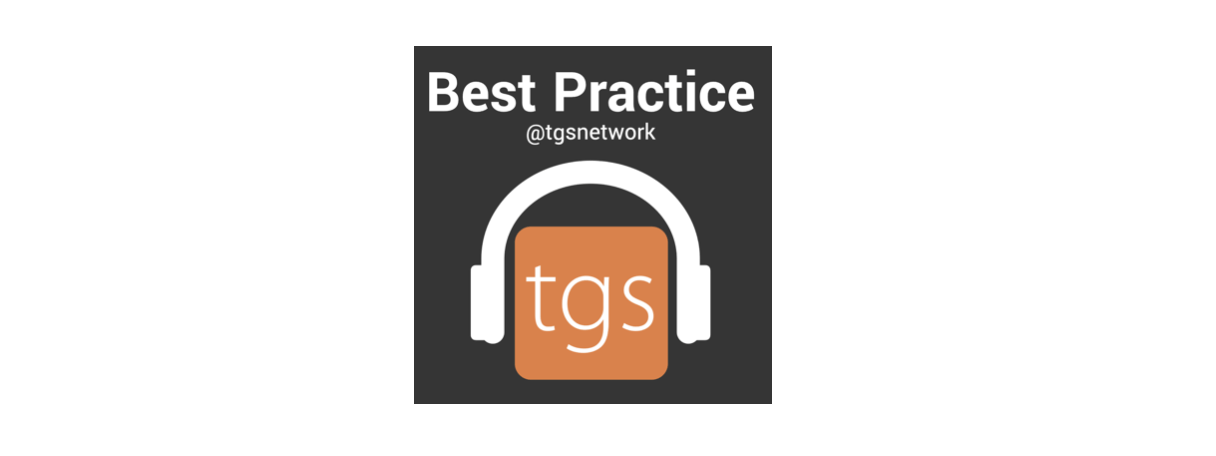
TGS Best Practice Podcast
The TGS Best Practice Podcast is an experimental series of podcasts to share best practice, inspiration and innovation for audit, accounting, advisory, audit, tax and commercial legal service providers.
TGS is a dynamic and sustainability-focused global business network with meaning: Think Global Sustainability.
Listen to more episodes of the TGS Best Practice podcast here.
TGS will help develop best practice in your firm.

